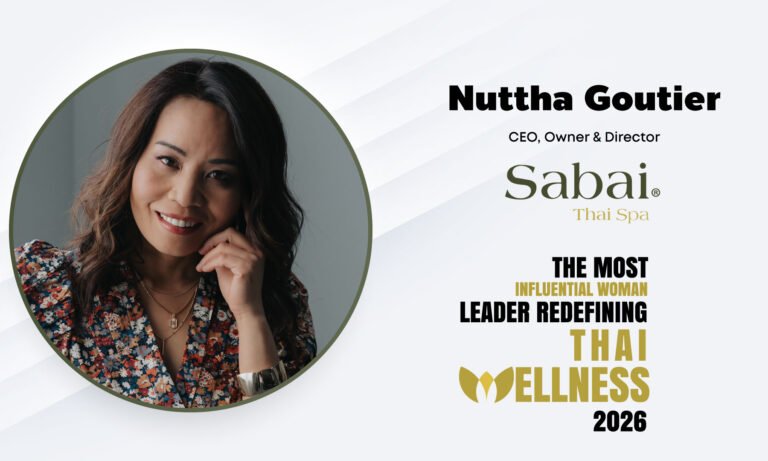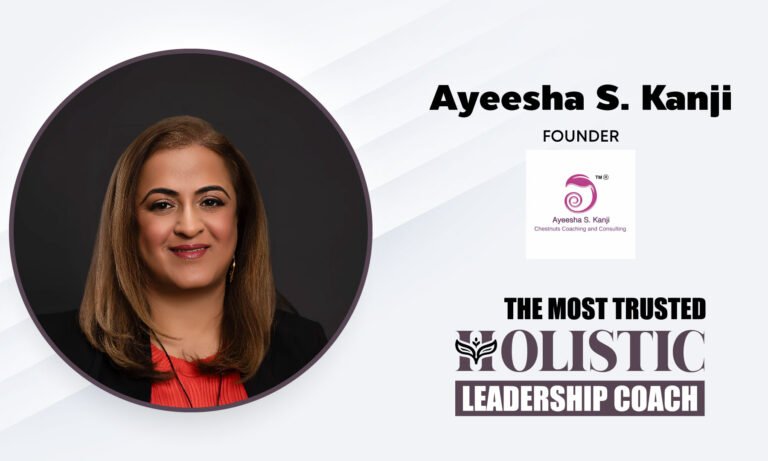Most Admired Healthcare Leader Of The Year 2025

The Mind That’s Remaking Medicine: Inside Dr. Chris Stout’s Vision for a Healthier Future
By The Influential Today Magazine

A Trailblazer in Modern Healthcare
The landscape of healthcare is constantly evolving, driven by the dedication and innovative spirit of individuals who dare to challenge the status quo. This year, the distinction of “Most Admired Healthcare Leader of the Year 2025” belongs to a figure whose influence resonates across academic centers, global forums, and the very fabric of patient care: Dr. Chris Stout. This exclusive interview offers a rare glimpse into the journey, philosophy, and the forward-thinking vision of a true healthcare maverick. His story is not just one of professional success, but a testament to the power of combining profound empathy with cutting-edge scientific inquiry, earning him the deep respect and admiration of colleagues and the wider community.
Early Inspirations: The Seeds of a Lifelong Mission
Dr. Stout’s path into the complex world of healthcare was paved by a series of formative experiences that ignited a lifelong commitment to improving well-being. Early in his life, certain pivotal moments sparked a deep curiosity about the intricacies of medicine and psychology, and the concomitant challenges in treating illness. These initial inspirations weren’t just fleeting interests; they were the seeds that grew into a profound dedication to medicine and innovation. His academic pursuits and early career choices were carefully considered steps, each building upon the last, driven by an evolving aspiration to not only understand but also to actively shape the future of psychology, graduate and medical education, and humanitarian intervention. Personal stories shared during the interview reveal a consistent thread of passion pared with resilience, highlighting a unique perspective on the fundamental aspects of health and well-being that has guided his remarkable career.
Pioneering Achievements: Using Technology and Data to Improve Patient Outcomes
Dr. Stout’s career is marked by significant milestones, each representing a leap forward in his quest to enhance healthcare. His key achievements and breakthroughs are not merely academic exercises; they are tangible contributions that have left an indelible mark on the healthcare landscape. For instance, his work in developing a novel software tool to use to do differential psychodiagnostics (i.e., distinguishing physical disorders mimicking as psychological illnesses – which he published and gave away at no cost for clinicians to use. Or his early research in measuring clinical outcomes which subsequently informed his work in evidence-based medicine and treatment guidelines and protocols which resulted in a number of academic books and peer-reviewed journal articles. He expanded his clinical research to include orthopedics and sports medicine and established two patient registries from his work in differential therapeutics and personalized medicine. He also did work in digital therapeutics and Software as a Medical Device (SaaMD) for FDA applications and predicate devices.
These accomplishments, among others, have garnered notable recognition within the areas of medicine, technology, psychology, global health and humanitarian intervention, and is demonstrated being awarded a number of prestigious honors and invitations to speak globally – including Davos, TEDs, SXSW, Renaissance Weekends, the United Nations, and many, many other events globally.
He recounted instances where significant obstacles and dangerous situations, working in various hot-spots and resource poor counties around the world. Nevertheless, he seems to have met them with an unwavering determination and innovative problem-solving approaches, ultimately leading to successful implementation and positive results.

Global Thought Leadership: Insights from Davos and Beyond
Dr. Stout’s influence extends beyond national borders, as evidenced by his lectures at the esteemed World Economic Forum in Davos. His core message to this global audience centered on open-sourcing humanitarian interventions in global health and education via collaborative, data-driven approaches to address global health disparities. Delivered against the backdrop of pressing global health concerns, his insights have resonated with leaders across various sectors. This experience in Davos proved to be a pivotal moment, broadening his perspective on the interconnectedness of global health issues. It fostered new ways of thinking and potentially laid the groundwork for future collaborations and initiatives aimed at tackling health challenges on a global scale. The opportunity to engage with such a diverse and influential group further solidified his commitment to translating high-level discussions into practical, impactful actions.
Bridging Science and Practice: A Blueprint for Implementation
A defining characteristic of Dr. Stout’s approach is his exceptional ability to bridge the gap between complex health challenges – diseases of poverty, mental health issues, infectious disease eradication and other related challenges. His methodology for translating intricate findings into practical strategies involves a multi-faceted approach. Key steps in this process include tried-and-true public health approaches to epidemiological data collection and analytics, prior to developing or trialing an intervention. Much of that training was based on his Fellowship in Public Health at the University of Illinois and over a decade of service as on the Board of Health in Illinois. He also applies his years of experience as a start-up founder and advisor in various ventures, vis-à-vis scaling and sustainability.
He shared specific examples where this approach has yielded significant, on-going positive outcomes, especially in his first collaboration based in Tanzania. This skill in applying the scientific method, data-based approaches and translational research approaches in real-world applications have been crucial in ensuring tangible benefits for individuals and in some instances, healthcare systems as a whole.

Embracing AI: Technology as a Catalyst for Change
Dr. Stout has been a long time believer in the transformative power of technology, and today, particularly Artificial Intelligences, in augmenting the future of healthcare. His perspective on AIs is one of cautious optimism, recognizing its immense potential while also acknowledging the need for responsible development and deployment. He has actively embraced innovative technologies, exploring their applications in various aspects of healthcare. For example, he discussed his involvement in spearheading a start-up and patent application for a Large Language Models for collecting, integrating, and synthesizing various measures (blood and other lab work, psychological tests, familial medical histories, diet, genetic data, lifestyle, and other various measures and tests) resulting in a probabilistic personalize-medicine report that makes actionable and measurable treatment an lifestyle recommendations to maximize health span as well as life span. He also has colleagues using Ais in the areas of early disease detection and accelerating the drug discovery process, which he holds great optimism. However, he also emphasizes the importance of addressing ethical considerations, potential sampling biases to ensure equitable access and outcomes, and identify and mitigate hallucinations.
Collaborative Solutions: Tackling Neglected Health Challenges
Throughout his distinguished career, Dr. Stout has recognized the power of collaboration in tackling complex healthcare challenges. He highlighted a significant partnership focused on the development of orphan drugs and addressing neglected tropical diseases as a particularly impactful experience based in Benin. This project involved working with a diverse group of researchers and academics in ethnobotany, the world’s first nonprofit pharmaceutical company, and other global health organizations, broadening his understanding of the unique challenges associated with these often-overlooked areas of medicine, while also safe-guarding the fragile and diminishing ecosystem of these promising medicinal plants. This collaboration not only enhanced his impact in the field but also reinforced his belief in the necessity of interdisciplinary approaches to achieve meaningful progress in global health. The lessons learned from this partnership have undoubtedly influenced his perspective on other healthcare initiatives, underscoring the value of shared expertise and resources via creative solutions that hold promise in providing multiple benefits – sustainability, intellectual property rights, and environmental protections.
Navigating Modern Challenges: Equity, Ethics, and Innovation
As a former faculty member in the both Northwestern University and the Univrsity of Illinois’s Medical Schools, Dr. Stout believes that today’s health professionals face a multitude of pressing challenges in a rapidly evolving landscape. He identifies the increasing burden of chronic diseases, the growing disparities in healthcare access, and the overwhelming volume of medical information medical students and practitioners need to integrate are key concerns. He believes that technological and societal changes are further shaping these challenges, creating both opportunities and problems.

Mentorship and Guidance: Shaping the Next Generation
Drawing upon his vast experience, Dr. Stout offered valuable advice for emerging professionals and innovators aspiring to make a significant contribution to health and wellness. He emphasized the importance of having a curiosity in divergent areas, cultivating a lifelong passion for learning and exploring, fostering strong interdisciplinary collaborations, and maintaining an unwavering focus on the needs of others and making a difference. He stressed the significance of combining scientific rigor with empathy and ethical considerations in all endeavors. For those seeking to innovate, he advised embracing challenges as opportunities for growth and remaining persistent in the pursuit of solutions that address real-world problems. His guidance serves as an inspiring roadmap for the next generation of healthcare leaders, researchers, academics, and entrepreneurs, encouraging them to pursue purpose-driven work that leads to meaningful impact.
Envisioning the Future: A Healthier World Through Innovation
Dr. Stout’s vision for the future of global health is ambitious and deeply rooted in a commitment to leveraging innovation for the betterment of humanity. He envisions a future where AI accelerates the identification of novel therapeutic targets and facilitates the development of more effective treatments for various conditions. His long-term goals include fostering greater global health equity, promoting preventative care through technological advancements, and his classic “open-sourcing humanitarian interventions.” Dr. Stout’s dedication to these specific areas reflects his unwavering belief in the power of science and technology to address some of the most pressing health challenges facing the world today.
Academic Excellence and Affiliations
Dr. Stout’s commitment to advancing healthcare is deeply rooted in his extensive academic involvement. He held an academic rank of Clinical Full Professor at the College of Medicine at the University of Illinois at Chicago and served as a Founding Advisor to their Center for Global Health. Prior to this, he held an academic appointment at Northwestern University’s Feinberg School of Medicine Department of Psychiatry and Behavioral Scicnce. His dedication to education extends to serving as a Fellow in the School of Public Health at the University of Illinois at Chicago and as a Visiting Professor at Rush University. He’s also taught graduate level Ethics, Psychological Assessment, and Professional Seminars at a number of APA-Approved doctoral programs in the Chicago area. His diverse academic roles highlight his commitment to shaping future generations of healthcare professionals and contributing to the advancement of medical knowledge.
A Legacy of Recognition and Accolades
Throughout his impactful career, Dr. Stout has been the recipient of numerous prestigious awards and recognitions. He was honored with the American Psychological Association’s International Humanitarian Award and the Illinois Psychological Association’s Humanitarian Award. His exceptional contributions have also been acknowledged with the Psychologists for Social Responsibility’s Humanitarian Award. Purdue University recognized him as the Distinguished Alumni of the Year in 1991 and awarded him an Honorary Doctor of Technology degree in 2012. In 2024, he received the Science Medallion of Distinction from Purdue University, a lifetime achievement award for his contributions to society. His appointment to the World Economic Forum’s Global Leaders of Tomorrow further underscores his global influence. He’s also been awarded 3 additional honorary doctoral degrees and delivered commencement addresses at five universities. These accolades reflect the profound impact of his work across various domains of healthcare and humanitarian efforts.
A Legacy of Leadership and Innovation
Dr. Chris Stout’s recognition as the “Most Admired Healthcare Leader of the Year 2025” is a fitting tribute to a career defined by innovation, compassion, and an unwavering commitment to advancing global health. His journey, marked by significant achievements, insightful perspectives, and a forward-thinking approach, serves as an inspiration to all who strive to make a positive impact on the lives of others. His leadership not only reflects a deep understanding of the current healthcare landscape but also a compelling vision for a healthier future, leaving an enduring legacy on the fields of medicine, psychology, technology, and humanitarian intervention.







